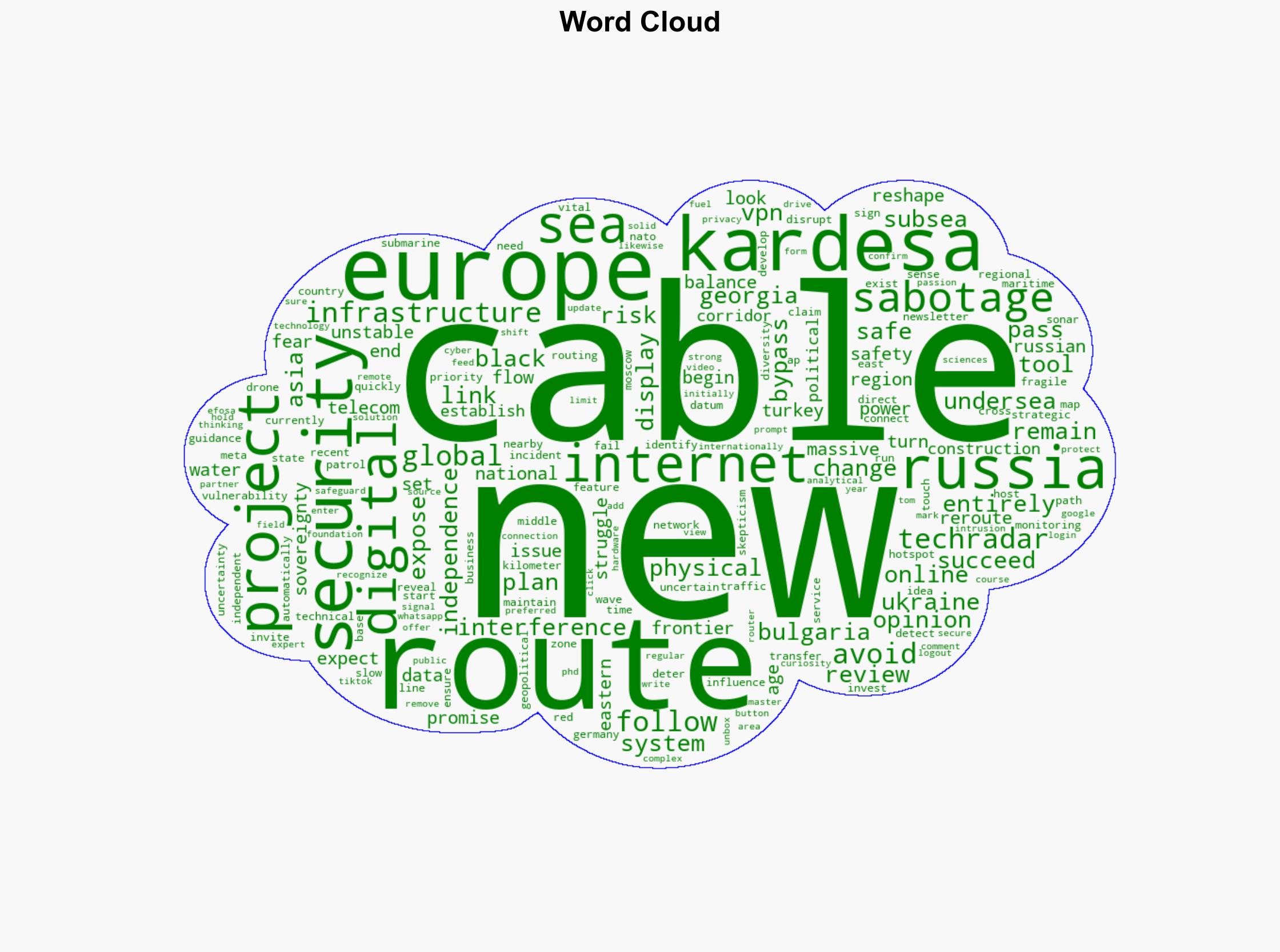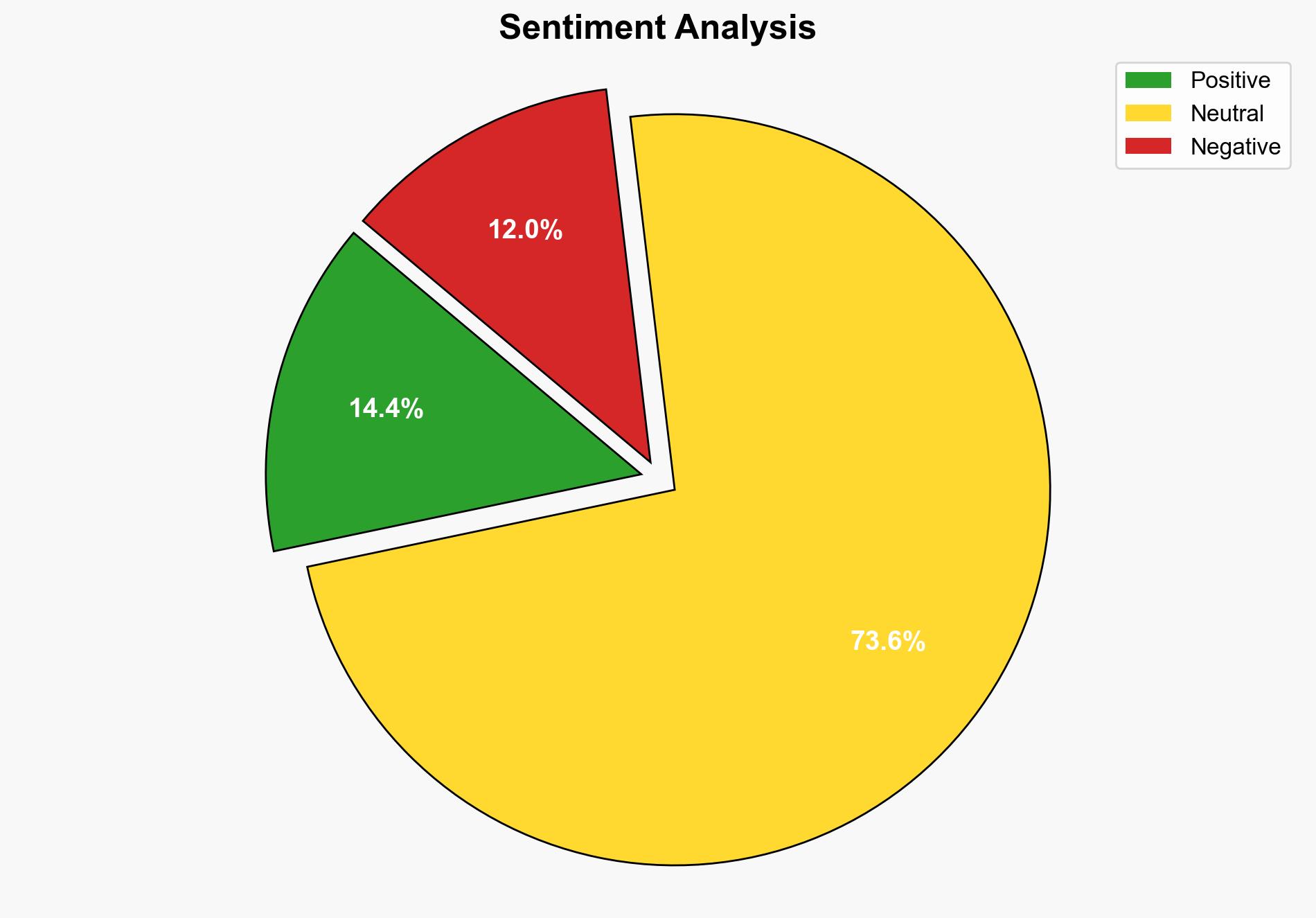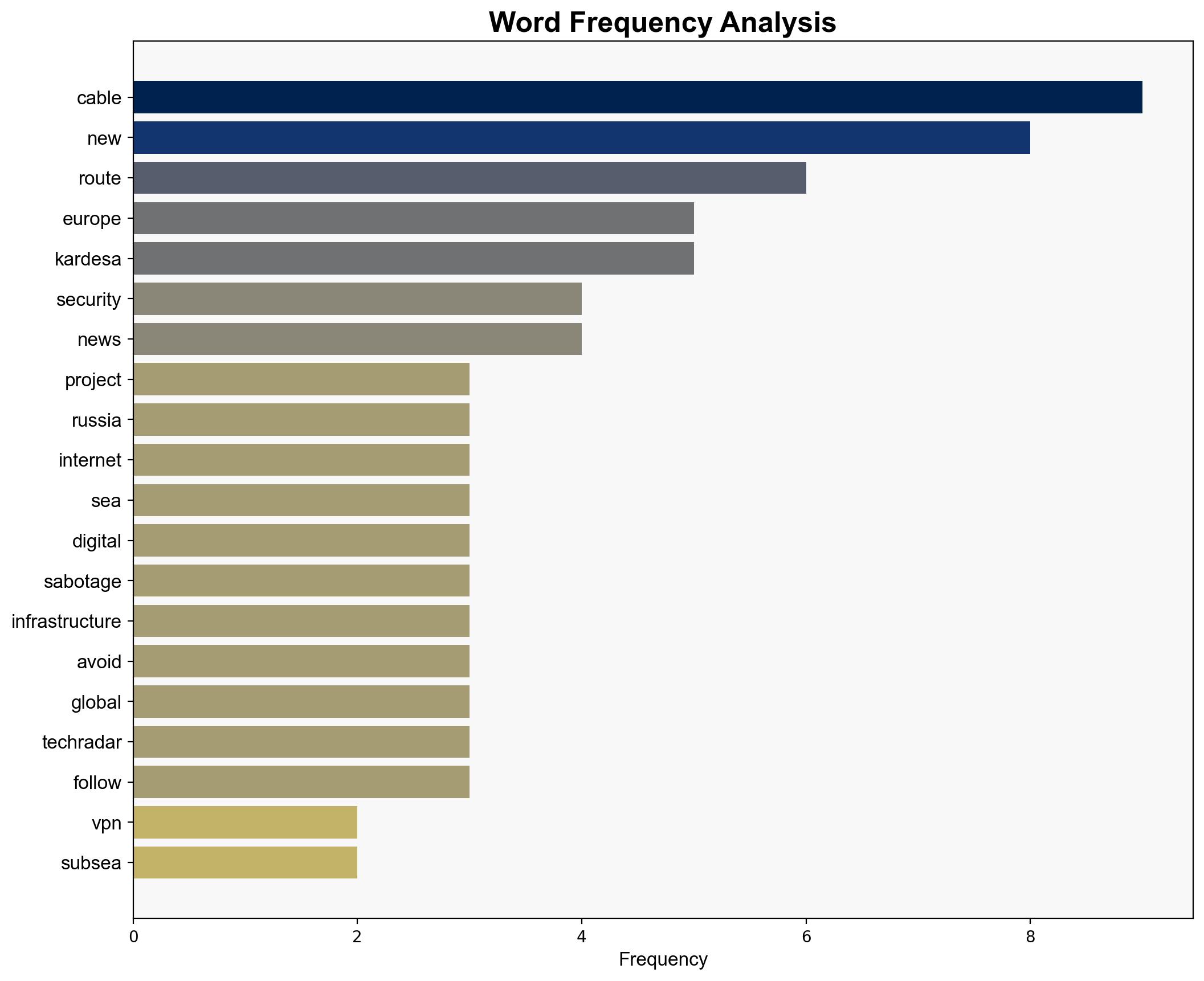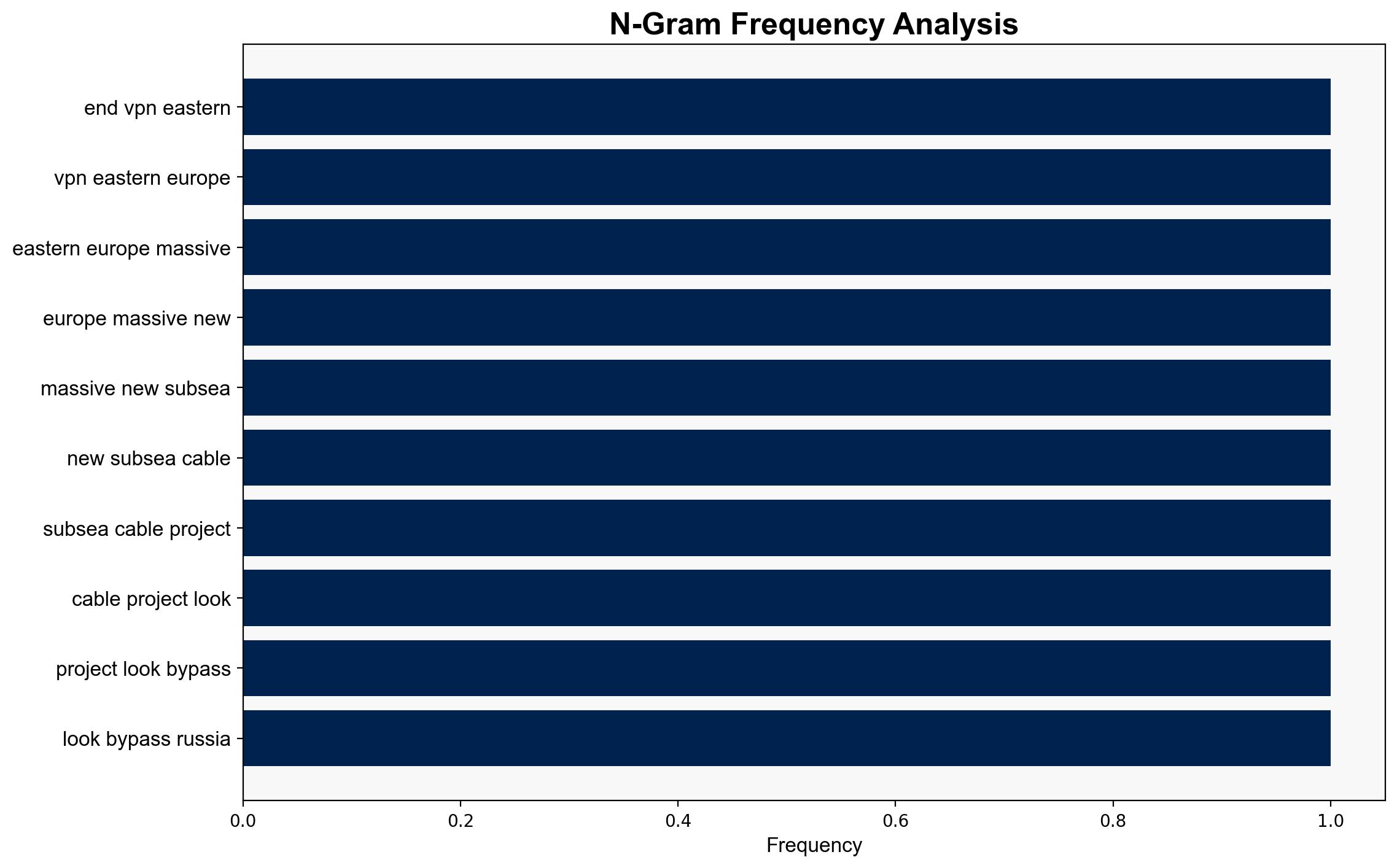The end of VPN in Eastern Europe This massive new subsea cable project looks to bypass Russia entirely – so is this a new age for Internet safety – TechRadar
Published on: 2025-10-25
Intelligence Report: The end of VPN in Eastern Europe This massive new subsea cable project looks to bypass Russia entirely – so is this a new age for Internet safety – TechRadar
1. BLUF (Bottom Line Up Front)
The construction of the Kardesa subsea cable project, which aims to bypass Russian waters, presents a strategic shift in digital infrastructure in Eastern Europe. The most supported hypothesis suggests that this project will enhance regional digital sovereignty and security. However, the potential for increased geopolitical tension and cyber threats remains. Confidence level: Moderate. Recommended action: Strengthen regional cybersecurity measures and diplomatic engagement to mitigate risks.
2. Competing Hypotheses
Hypothesis 1: The Kardesa subsea cable project will significantly enhance internet safety and digital sovereignty in Eastern Europe by reducing dependency on Russian-controlled routes.
Hypothesis 2: The project may inadvertently increase geopolitical tensions and cyber vulnerabilities, as it could be perceived as a threat by Russia, leading to potential sabotage or cyberattacks.
3. Key Assumptions and Red Flags
Assumptions:
– Hypothesis 1 assumes that bypassing Russian waters will inherently improve security and independence.
– Hypothesis 2 assumes that Russia will perceive the project as a direct threat and respond aggressively.
Red Flags:
– Lack of detailed information on the project’s security measures.
– Potential underestimation of Russia’s capacity for cyber retaliation.
4. Implications and Strategic Risks
The project could shift the balance of digital power in Eastern Europe, potentially reducing Russian influence. However, it may also lead to increased cyber threats and geopolitical tensions. The risk of cable sabotage or cyberattacks could disrupt regional and global internet traffic, affecting economic stability and security.
5. Recommendations and Outlook
- Enhance cybersecurity protocols and infrastructure protection measures in collaboration with NATO and regional partners.
- Engage in diplomatic dialogue with Russia to reduce potential tensions and explore cooperative security measures.
- Scenario Projections:
- Best Case: Successful implementation of the cable project with minimal geopolitical friction, enhancing regional digital independence.
- Worst Case: Escalation of cyberattacks and geopolitical tensions, leading to significant disruptions in internet services.
- Most Likely: Gradual improvement in digital sovereignty with intermittent cyber threats and diplomatic challenges.
6. Key Individuals and Entities
– Kardesa project stakeholders
– NATO cybersecurity teams
– Russian government and cybersecurity agencies
7. Thematic Tags
national security threats, cybersecurity, counter-terrorism, regional focus




